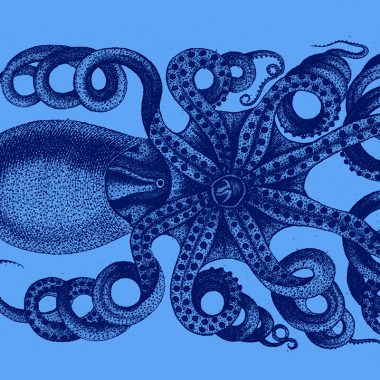Search Results for: drag culture
-
A New Planet? Perhaps. What Does The Name “Tyche” Mean?
For years, scientists have been on the hunt for a mysterious “Planet Nine” that may exist in our solar system with a massive orbit of thousands—or even millions—of years. In 2011, a provocative hypothesis posed by a duo of planetary astronomers from the University of Louisiana-Lafayette named its version of this mysterious planet Tyche. They proposed a planet estimated to be four times the size of …
-
Yeezus, Simile, and Metaphor
If you know Kanye, you know the man likes to pronounce his greatness. He does it in a myriad of ways. In a past compulsively quotable interview in New York Times, he did it by likening himself to Steve Jobs: “I am undoubtedly, you know, Steve of Internet, downtown, fashion, culture.” On his album, he takes it a step further with a ditty titled “I Am …
-
Encoding Shakespeare into DNA
It’s time to look at the language of life itself—DNA. As you might remember from 7th-grade science, DNA stands for deoxyribonucleic acid, the molecular structure that stores the genetic code for all life forms.
-
What Is The Lesser-Known Language Millions Of People Speak In Spain?
Catalan is a Romance language spoken primarily in the Eastern and Northeastern regions of Spain, mainly Catalonia, Valencia and the Balearic Isles. It is the official language of Andorra, a landlocked country located in the Eastern Pyrenees (mountains bordered by Spain and France). The Catalan language was nearly wiped out in the early 1700s only to experience a renaissance beginning in the early 20th century. What …
-
Lexical Investigations: Diaspora
The history of the term diaspora shows how a word’s meaning can spread from a very specific sense to encompass much broader ones.Diaspora first entered English in the late nineteenth century to describe the scattering of Jews after their captivity in Babylonia in the fifth century B.C.E.










